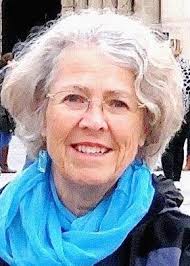By Susan Nugent, Climate Reality Project
How much must we suffer before we work together to address both COVID-19 and our climate crisis?
Some have learned not to play well with others, taking Frank Sinatra’s words to heart: “I’ll do it my way.” Instead of cooperating to reduce the number of deaths, these plague vectors continue to spread the virus.
Cooperation is a necessity as we face the climate crisis. At the United Nations Conference on Climate, COP21, most nations around the globe agreed to work together to lower uses of fossil fuels. That goal, in turn, would reduce the amount of carbon dioxide in the air, thus keeping temperatures from increasing more than 1.5 degrees centigrade.
That goal, like stopping COVID-19, demands working together to succeed. Our world’s temperature will rise if all countries are not working for the same objective.

Our president has started the process of withdrawing from this agreement. Just as he resisted wearing a mask to combat COVID-19, he won’t maintain regulations that would result in lower fossil-fuel consumption.
For example, one regulation would have required our car industry to lower emissions. When that regulation and others were repealed, the industry slowed its efforts to produce affordable electric cars in the near future.
An additional lesson from COVID-19 is the need for compassion. To stop the spread of this virus, we must worry about more than ourselves. Instead of causing others to become infected, we take precautions, wanting no one to suffer intubation because of this virus.
Compassion for those vulnerable — the old, the sick, the workers who go to their jobs daily — gives us reason enough to wear a mask, to keep our distance, to wash our hands often, to avoid unnecessary contact.
That same compassion leads us to face the climate emergency concerned not for ourselves but for the vulnerable now stressed by increasing heat, breathing issues and failing crops. We also need to care for our youth as they live in the world we leave behind, one with increased temperatures and decreased biodiversity.
How can some have no empathy for either their grandparents or their grandchildren? How do we teach or model compassion?
Science offers answers to both crises. However, deniers doubt science and are immune to data.
In the Mother Jones article, “The Science of Why We Don’t Believe Science,” Chris Mooney discusses case after case in which facts can’t alter an emotional response to a topic. So, neither COVID-19 facts nor climate change facts can be accepted because of bias.
Facts are not very effective when they are presented to argue against a strongly held belief or prior judgment. To change minds, Mooney states, “Conservatives are more likely to embrace climate science if it comes to them via a business or religious leader, who can set the issue in the context of different values than those from which environmentalists or scientists often argue.”
Many climate scientists have tried to use health issues or concern for justice as a means of connecting with deniers. However, those who refuse to wear masks defy both health and justice. Individualism and personal convenience trump all.
In examining the economic impact of COVID-19, McKinsey & Company evaluates responses to our increased time at home. The report asks us to reconsider our priorities. What have we liked about this slow time, these days of change?
Perhaps in examining our lives we will find incentive to adhere to COVID-19 rules as well as act upon climate. Some of us have spent more time appreciating nature. Some have gardened; some enjoyed hikes; others went bird-watching. If nature is a priority in our lives, we must address climate issues.
Audubon reports bird species are disappearing. The National Wildlife Association documents the number of plant species being lost. We are losing public lands to fossil-fuel extraction and our local landscape to unstoppable development.
All of these changes and many more are directly related to our climate emergency. If not facts, let emotional responses to these losses motivate action.
Susan Nugent is a Climate Reality Project leader from Gainesville.



